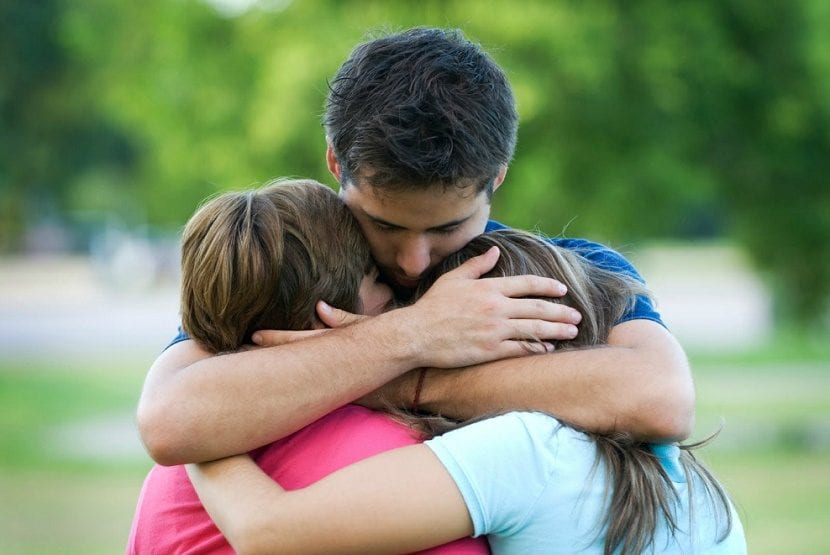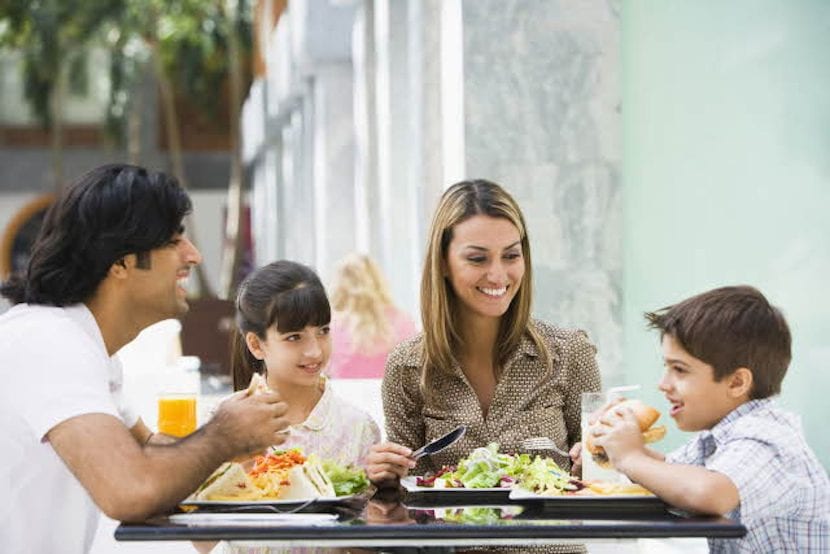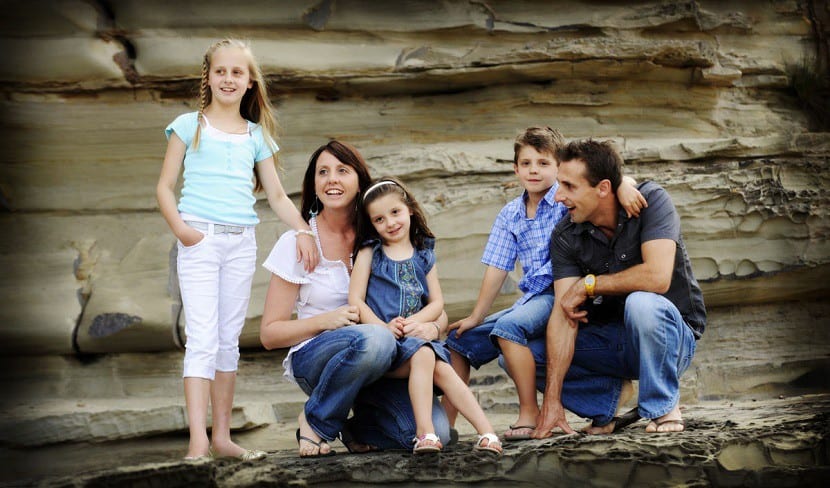
Sometimes we think that it is necessary to educate children in values, of course, this is essential and necessary. Values and education are learned at home, but before teaching children to say 'I'm sorry', 'Sorry' and 'Thank you', we adults must learn to say it. But not to say it to others, but to say it to our own children whenever necessary.
Children learn thanks to the example of their parents, and this must be taken into account every day of the year. If you want your children to learn to say 'I'm sorry', 'Sorry' and 'Thank you', you should tell them first. Do not be ashamed, you are not a superior being ... They are not superior beings, far from it. Teach them from humility so that they learn to be humble.
Before a child learns to apologize
Before a child can apologize, they must realize what they have done wrong ... Something that children under 5 can find quite difficult. Young children are in the egocentric phase and do not always grasp what is right from what is wrong. That is why both parents and teachers should step in and point out when an apology is necessary. In two-year-olds, it will be necessary to apply rules so that they learn good from evil and let him know when it will be necessary to say sorry. If he does not say it when he is small, do not worry, what matters is that I understand its importance.

Instead, When children are between 3 and 5 years old, they need to understand why it is important to say what they feel and in addition, they must begin to do it little by little ... And you will be their maximum example. When you want your young children to say what you feel, you should explain in a simple way why it is important to do so: 'We say sorry when we do something that annoys another person'. Although it is true that at this age, children are not capable of mentally putting themselves in the place of the other, this is important to start working on empathy at an early age, a seed that will undoubtedly bear good fruit in the future. It is important to point out how another child feels and that the little ones try to imagine him with this question: 'Luis is crying, how do you think he feels?'
When working on the apology, the behavior should be taken into account and never the child. This means that children must understand that behavior must be changed and that there is nothing wrong with them. Apologies mean nothing if behavior doesn't change. For this reason, it is important to reformulate the rules and that the consequences are followed.
Your example is the most important
Children learn from adults and if you really want me to give importance to the words 'sorry' and 'sorry', then you should be their best example. Children must see in adults that they also take responsibility for their behavior and also show that what matters is not the behavior itself, but to realize the error and find a solution so that it does not happen next time.
For example, if one day you yell at your children because you were nervous about work or for any other reason, don't let those feelings fall on deaf ears. A cry will always hurt the soul of your children And that is why it is crucial that you ask for forgiveness and show that you are being responsible for the wrong behavior you have committed. Explain to your child why you yelled at him, why he is not okay, and that next time you will be able to control your negative emotions (and then do it). One way to control these emotions is to leave the room where it seems that you are going to explode emotionally, take a deep breath and count to 20. Then, think about the situation again and approach it calmly and calmly again. By force it is not in the screams, but in the calm.

The same is true when we want children to learn to say thank you and be grateful. When your children do something for you, whatever it is, even the smallest detail ... Thank them, they deserve it. If, for example, you ask him for a glass of water and he brings it to you, thank him! If he tells you that you look pretty in your new suit, thank him! They deserve that emotional comfort that comes from saying thank you.
In this way they will learn the importance of giving thanks and the best, they will know what it feels like to receive this word ... The satisfaction of doing something for another person and that the other feels grateful, undoubtedly awakens a great feeling of empathy and humility that children must learn. But of course, it is in your power to teach them that it is well born, to be grateful.

How to help children do it
Children must learn to admit their guilt and to be grateful. They may be scared, embarrassed, or shy when apologizing, so don't miss the following ideas to help you do just that:
- Stay neutral in the face of conflicts, look for solutions.
- Do things together with your child if you find that it is difficult for him to do it alone, but do not force him to do things that he does not feel like.
- Do not insist or force your child to say what he feels, this can make the situation worse.
- Keep your anger under control.
- Take the initiative when your child is too upset to say what he feels about himself, help him put his emotions into words.
- Be careful if it is too easy. It is important that children do not learn to say 'sorry', 'sorry' or 'thank you' without really knowing what it means or without knowing why they are saying it. If this happens they will repeat the offensive behavior in no time.
Parents must become aware of whether they are really being consistent with the education of their children and if they are the best example for them.